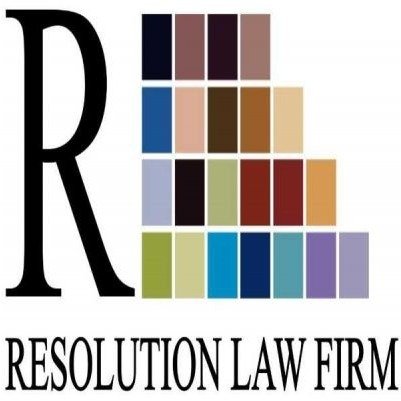Best Citizenship Lawyers in Lekki
Share your needs with us, get contacted by law firms.
Free. Takes 2 min.
List of the best lawyers in Lekki, Nigeria
About Citizenship Law in Lekki, Nigeria
Citizenship law in Nigeria, including the region of Lekki, is governed by the Nigeria Citizenship Act. It establishes three main ways one can become a Nigerian citizen: by birth, by descent or by naturalization. A person can become a Nigerian citizen by birth if either their parent or grandparent belongs to a community indigenous to Nigeria. Since Lekki is part of the Lagos State of Nigeria, citizenship laws that apply across Nigeria apply here as well.
Why You May Need a Lawyer
Understanding and navigating citizenship laws can be complex and challenging. You might need a lawyer in the following instances: if you are seeking to obtain citizenship through naturalization, if you are applying for dual citizenship, if you need representation for any immigration-related legal issues, or if you want to renounce your Nigerian citizenship. A competent citizenship lawyer can guide you through the process, making sure all paperwork is prepared accurately and helping you avoid potential legal pitfalls.
Local Laws Overview
Nigeria's constitution outlines the criteria for citizenship by birth, registration or naturalization. For example, anyone born outside of Nigeria whose parents, or grandparents, are citizens of Nigeria may apply for citizenship. Additionally, anyone wishing to become a naturalized citizen needs to have resided in Nigeria for a minimum of 15 years, intend to remain in Nigeria indefinitely, be of good character, and be able to provide a local reference.
Frequently Asked Questions
What is dual citizenship in Nigeria?
Dual citizenship, often referred to as dual nationality, means a person is a national of two countries at the same time. Nigeria recognizes and allows dual citizenship for those who acquire the citizenship of another country other than their country of birth.
Can a foreigner become a Nigerian citizen?
Yes, a foreigner can become a Nigerian citizen through the process of naturalization, provided they meet specific requirements, including continuous residence, tax payments, and good character.
What rights do Nigerian citizens have?
Nigerian citizens enjoy a range of rights and privileges which include the right to vote, freedom of speech, right to a fair hearing, and the right to movement, amongst others.
Can citizenship be revoked in Nigeria?
While Nigerian citizenship obtained by birth or descent cannot be revoked, the citizenship of naturalized citizens can be revoked on certain legal grounds, such as disloyalty to the Federal Republic of Nigeria or assisting an enemy state.
Can a non-Nigerian born in Nigeria become a citizen?
A person born in Nigeria to foreign parents can become a Nigerian citizen through naturalization, provided that person plans to reside in Nigeria indefinitely and meets other requirements as outlined by law.
Additional Resources
You can refer to the Nigeria Immigration Service and the Federal Ministry of Interior websites for more detailed and up-to-date information about various aspects of Nigerian citizenship laws. The Nigerian Citizenship Act is also a vital reference material.
Next Steps
If you need legal assistance, consider seeking the services of a reputable law firm experienced in citizenship and immigration law in Nigeria. They would guide you through the legal process, ensuring that your rights and interests are protected. Do note that legal advice is typically not free, and fees can vary greatly depending on the complexity of your case and the popularity of the lawyer or law firm.
Lawzana helps you find the best lawyers and law firms in Lekki through a curated and pre-screened list of qualified legal professionals. Our platform offers rankings and detailed profiles of attorneys and law firms, allowing you to compare based on practice areas, including Citizenship, experience, and client feedback.
Each profile includes a description of the firm's areas of practice, client reviews, team members and partners, year of establishment, spoken languages, office locations, contact information, social media presence, and any published articles or resources. Most firms on our platform speak English and are experienced in both local and international legal matters.
Get a quote from top-rated law firms in Lekki, Nigeria — quickly, securely, and without unnecessary hassle.
Disclaimer:
The information provided on this page is for general informational purposes only and does not constitute legal advice. While we strive to ensure the accuracy and relevance of the content, legal information may change over time, and interpretations of the law can vary. You should always consult with a qualified legal professional for advice specific to your situation.
We disclaim all liability for actions taken or not taken based on the content of this page. If you believe any information is incorrect or outdated, please contact us, and we will review and update it where appropriate.









